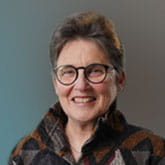In 2016, the U.S. spent $3.34 trillion, or 17.9 percent of the gross domestic product (GDP), on healthcare, of which $329 billion was spent on prescription medications. Forty-four percent of all Americans take at least one prescription medication, and 17 percent take three or more medications. Five of six people aged 65 and older take at least one medication, and almost half of those aged 65 years and older take three medications or more.
Considering the significant percent of Americans taking medications, many as part of complex regimens, it is not surprising that the estimated annual cost of drug-related morbidity and mortality resulting from nonoptimized medication therapy is $528.4 billion, which is equivalent to 16 percent of total U.S. health care expenditures in 2016.
Nearly 90% of Americans live within two miles of a pharmacy, likely making pharmacists the most accessible healthcare provider in the American healthcare system.Patients visit a pharmacy an average 35 times per year compared to just four visits to see medical providers. Indeed, community-based pharmacists are playing increasingly central patient care roles which extend beyond the traditional role of dispensing prescriptions and medication education and counseling, which pharmacists have always very successfully played.
By 2015, 280,000 pharmacists in 50 states were licensed to provide vaccinations and in 2017 the CDC estimates indicated that 28.3 percent of adults were vaccinated at a pharmacy or store, up from 24.3 percent in the 2016 season. In Canada, a pharmacist-led educational intervention compared with usual care resulted in greater discontinuation of prescriptions for inappropriate medication after six months. Legislation passed in 2015 provided for medication therapy management (MTM) services to Medicare beneficiaries with specific single chronic conditions, including diabetes, cardiovascular disease, COPD, and high cholesterol. These conditions have been shown to respond especially well to MTM which improves medication adherence, leading to better outcomes and reduced overall costs. In many states, pharmacists have the authority to recommend and prescribe routine medications such as smoking cessation agents and oral contraceptives, as well as interpret common diagnostic tests such as influenza and strep throat tests. Utilizing collaborative care agreements with physicians and practices, pharmacists in the setting of advanced practice models such as patient-centered medical homes are able to perform patient assessment activities, ordering and interpreting laboratory tests, developing therapeutic plans, and ultimately utilizing prescriptive authorities to initiate, adjust, or discontinue drug treatment. In the initial phases of the COVID-19 pandemic in April 2020, the U.S. Department of Health and Human Services (HHS) authorized licensed pharmacists to order and administer COVID-19 tests to their patients. HHS did so, stating that the accessibility and distribution of retail and independent community-based pharmacies make pharmacists the first point of contact with a healthcare professional for many Americans.
In the last few weeks, Walgreens and VillageMD announced that Walgreens will be the first national pharmacy chain to offer full-service doctor offices co-located in its stores. This expanded partnership will open 500 to 700 “Village Medical at Walgreens” physician-led primary care clinics in more than 30 U.S. markets in the next five years, with the intent to build hundreds more thereafter. The clinics will uniquely integrate the pharmacist as a critical member of VillageMD’s multi-disciplinary team. This is clearly a significant milestone in the evolution of the role of the pharmacist as a full-fledged member of the primary care team. Patient access and quality of care only stand to gain from this evolution.
Meet NextGen Ambient Assist, your new AI ally that generates a structured SOAP note in seconds from listening to the natural patient/provider conversation.
Read Now